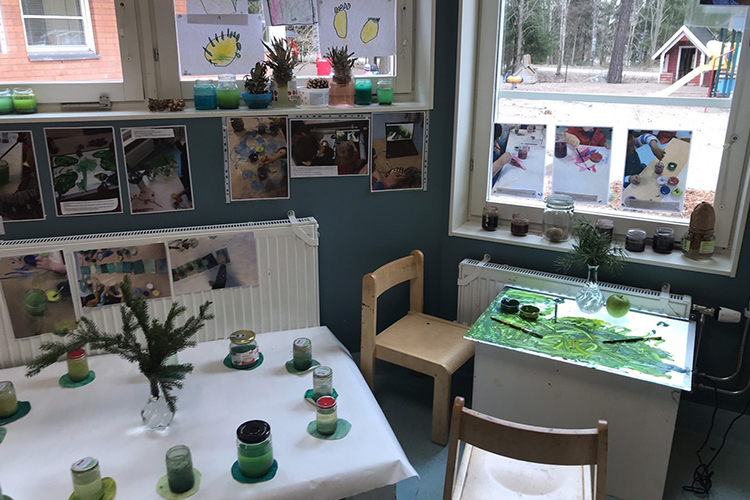外国語で発信!私の学生生活
外国語で発信!私の学生生活

T.E.さん
Why I think early cross-cultural education is important
I am a senior student in the Department of Child Studies, Faculty of Human Science and Design, Japan Women's University. I will be going to study abroad at Uppsala University in Sweden for about 10 months starting August 2021. As part of my studies, I participated in practical teacher training at different preschools several times. There, I witnessed children with different racial and cultural backgrounds and Japanese children receiving a childcare together. Since the preschool mirrors what happens in society by engaging with teachers and friends from various backgrounds, children are interested in culture and have a willingness to accept the people by having such experiences from an early age. That is why I think early cross-cultural education is necessary. In the future, I would like to work at this type of setting. I strongly feel that it is necessary for teachers to consider their own multicultural awareness and develop skills to educate young children to recognize and accept "differences". Also, I am aware of the problem of supporting and educating foreign children who are recognized as minorities in Japanese daycare and kindergartens, which seem to be becoming more internationalized. Therefore, I would like to learn through studying abroad how to create an environment where each and every one of them can feel comfortable and included, not an environment where children of different racial or cultural backgrounds feel like minorities. In addition, I think that it will lead to the opportunity for Japanese children to get to know other cultures and understand them. Thus, it is essential to create an environment where all children can have many experiences of knowing, seeing, experiencing, feeling, and learning about the country and culture. In Sweden at Uppsala University, where multicultural childhood education is widely practiced due to the high influx of immigrants to Sweden, I would like to learn their practices, support methods, and expertise that promote the development of necessary for adapting a local life. Thus, I will make use of those learning to contribute children in the future.

なぜ幼児期のうちに多文化教育を受ける必要があるか
私は、今年の夏から約一年間スウェーデンのウプサラ大学へ留学する予定です。私の将来の夢は、日本の幼児と外国籍の幼児が共に学ぶ保育園や幼稚園などの現場で働くことです。児童学科に在籍中、保育園や幼稚園での実習を複数回経験し、様々な国にルーツを持つ幼児たちが一緒に保育や教育を受けている様子を目の当たりにしたことで、日本における多文化共生保育の現状、保育者による専門性と多文化への意識、そして幼児たちが「違い」を認めて受け入れる力を育てる保育を検討していく必要があると強く感じました。私は、国際化が進む日本の保育園や幼稚園での、マイノリティと認識される外国籍児への支援や教育に問題意識を持っています。外国にルーツを持つ幼児の文化的アイデンティティは多様であり、母語の尊重や母国文化の保持は重要な援助と考えます。そのため、外国籍の幼児たちがマイノリティになる環境ではなく、一人ひとりが集団の中で居場所や所属感を感じられる環境づくりを、留学を通して学んでいきたいと考えています。また、文化的マジョリティである日本人幼児たちが他の文化を知り、その幼児を理解するきっかけにも繋がると考えます。そのため、まずは全ての子どもたちが「国や文化を知る、見る、体験する、感じる、学ぶ」経験が多くできる環境を作ることが大切だと考えています。よって、スウェーデンという移民が多く国際理解や文化の多様性への幼児教育を推進する地で、ウプサラ大学への留学を通し、子どもたちの母国語やアイデンティティを守りつつ、現地での生活に必要な力の発達を促す、様々な具体的な支援方法や実践例を学びたいと考えています。最終的には、それらの学びを活かし、今後より国際化していく日本の保育園や幼稚園に通う子どもたちの支援に貢献したいと考えています。












